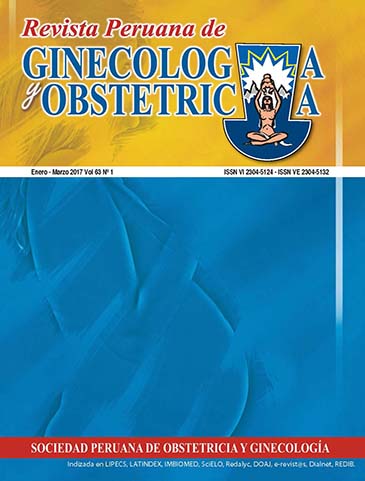Rapid assessment of the situation of the sexual and reproductive health services in the framework of Zika virus epidemic in Peru
DOI:
https://doi.org/10.31403/rpgo.v63i1967Abstract
In Latin America, the first months of 2016 were marked by the increasing reports of microcephaly, which was shortly afterwards shown to have been caused by the Zika virus. Initially, its transmission was typified as metaxenic (caused by the Dengue mosquito Aedes aegypti); later, evidences of sexual transmission were detected. Thus, the Ministry of Health of Peru required to evaluate the response capacity of the reproductive health services to needs and critical knots and to draft a plan to improve the offer. In the case of Lima, EsSalud facilities were also included. Through individual and group interviews, and check lists and observation lists, key variables of the health system were analyzed. The budget of the regions was always lower than that requested; the family planning budget was expended in other uses. Office hours were limited. The staff skills on both intrauterine device (IUD) and long-acting reversible contraception (LARC) use needed to be updated. 83% of the facilities had shortage of monthly injectable contraception, and 17% were sub-stocked. Likewise, the staff needed to be trained on Zika prevention during sexual activity, and before and during pregnancy. The links with sexual violence were not recognized. The services for adolescent users had restricted office hours, and other access limitations. Only 22% of the users had received information from the suppliers.Downloads
Download data is not yet available.
Downloads
Published
2017-04-21
How to Cite
Mendoza, W., Gutiérrez, M., Zúñiga, M. E., Del Carpio, L., Meza, L., Guzmán, A., Subiria, G., Gutiérrez, C., Tejada, I., Velásquez, E., Revilla, T., & Rojo Silva, M. (2017). Rapid assessment of the situation of the sexual and reproductive health services in the framework of Zika virus epidemic in Peru. The Peruvian Journal of Gynecology and Obstetrics, 63(1), 65–69. https://doi.org/10.31403/rpgo.v63i1967
Issue
Section
Simposio
















